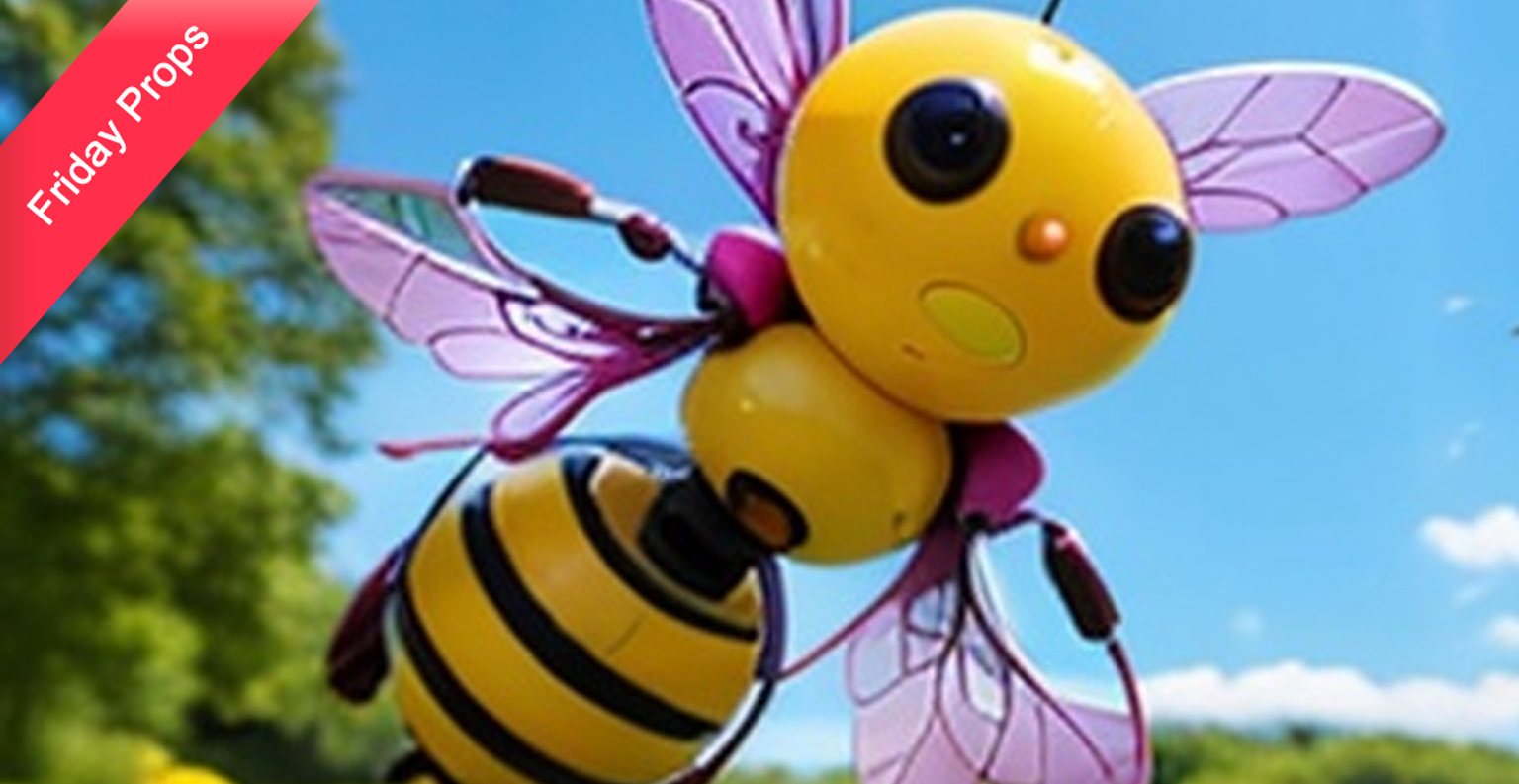| Edgeworks Product | 9 |
| Content Creation | 4 |
| SEM | 11 |
| Design | 11 |
| Instructional Design | 3 |
| Props | 218 |
| Alphabet Soup | 33 |
| Creative Collaboration | 1 |
| Website Ownership | 5 |
| Services | 5 |
| Client Website | 29 |
| Edgeworks Office | 18 |
| Marketing | 18 |
| AI Assisted Post | 1 |
| SEO | 10 |
| This Day in History | 1 |
| Branding | 1 |
| Book Review | 1 |
| Q&A | 3 |

This week we prompted ChatGPT to select anything whatsoever and give it Firday Props. Without further ado:
Introduction
Welcome to this week's edition of "Friday Props," where we celebrate the incredible virtues of an unsung hero in our ecosystem—the honeybee. Often overlooked and underestimated, these tiny creatures play a vital role in maintaining the delicate balance of nature, ensuring the survival of countless plant species and contributing significantly to our food production. In this blog post, we'll delve into the world of honeybees, explore their remarkable traits, and uncover the reasons why they deserve our utmost admiration and appreciation.
Behind the scenes of honey production, the lives of honeybees are nothing short of fascinating. These social insects live in highly organized colonies, each with specific roles and responsibilities. The colony is led by a queen bee, whose primary function is to lay eggs and maintain the population. Drones, the male bees, have the crucial task of mating with a new queen, while worker bees—sterile females—undertake a myriad of duties such as foraging for nectar and pollen, building and maintaining the hive, and caring for the young.
One of the most crucial roles honeybees play is that of pollinators. As they gather nectar from flowers to produce honey, these tiny creatures inadvertently transfer pollen between flowers, enabling the fertilization and reproduction of plants. It's estimated that approximately one-third of the world's food production depends on honeybee pollination, highlighting the significance of their work in ensuring food security and maintaining diverse ecosystems.
Honeybees possess an extraordinary means of communication known as the "waggle dance." This dance is performed by worker bees to communicate the location of a food source to their hive mates. Through a combination of body movements and wing vibrations, they convey the distance, direction, and quality of the discovered food. This remarkable dance language exemplifies the level of sophistication within honeybee societies and showcases their advanced cognitive abilities.
Apart from their essential role as pollinators, honeybees gift us with a sweet and nutritious product - honey. The process of honey production is a marvel in itself. Bees collect nectar from flowers and store it in their honey stomachs. Once back at the hive, they regurgitate the nectar into the mouths of other bees, and this process is repeated until the nectar is partially digested. The partially digested nectar is then deposited into honeycomb cells, where it undergoes further dehydration through the fanning of wings, ultimately transforming into the golden, viscous substance we know as honey.
Beyond its delectable taste, honey boasts numerous health benefits. It is a natural energy source, rich in antioxidants and antibacterial properties. Honey has been used for centuries in traditional medicine and continues to find applications in modern health practices.
In recent years, honeybees have faced numerous challenges, including habitat loss, pesticide exposure, climate change, and the emergence of diseases like Colony Collapse Disorder (CCD). CCD is a phenomenon in which entire colonies of honeybees abruptly disappear, leaving behind the queen and only a few worker bees. Despite these adversities, honeybees have shown incredible resilience and adaptability.
Numerous individuals and organizations around the world have recognized the importance of protecting honeybee populations and supporting pollinator-friendly initiatives. Beekeeping has become an increasingly popular hobby, and urban beekeeping projects have emerged in various cities, contributing to both honey production and pollinator conservation.
As we conclude this edition of "Friday Props," let us take a moment to appreciate and applaud the incredible virtues of the honeybee. These humble creatures embody the resilience of nature and provide us with a beautiful lesson on the interdependence of all living beings. Through their diligent work as pollinators, they sustain the planet's biodiversity and contribute to our agricultural abundance. Moreover, honeybees remind us of the importance of environmental stewardship and inspire us to take actions that safeguard our natural world for generations to come.
So, the next time you see a honeybee buzzing about in the garden, take a moment to give them the "Friday Props" they truly deserve!